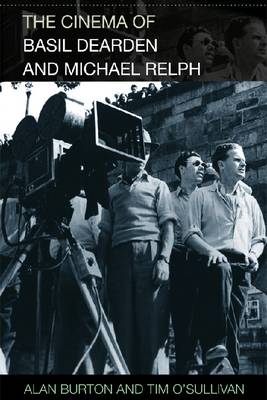
- Afhalen na 1 uur in een winkel met voorraad
- Gratis thuislevering in België vanaf € 30
- Ruim aanbod met 7 miljoen producten
- Afhalen na 1 uur in een winkel met voorraad
- Gratis thuislevering in België vanaf € 30
- Ruim aanbod met 7 miljoen producten
Zoeken
€ 170,45
+ 340 punten
Omschrijving
This book offers the first full systematic assessment and evaluation of the cinema of this important filmmaking partnership. Dearden and Relph came together at the famous Ealing Studios in the wartime period and became the most prolific production team at the studio, contributing such popular and critically acclaimed films as The Captive Heart (1946), The Blue Lamp (1950) and Pool of London (1951). Later in the 1950s, Dearden and Relph branched out into independent production and became particularly associated with a cycle of controversial social problem films that included Sapphire (1959) and Victim (1961).This new study takes an extensive view of the cinema of Basil Dearden and Michael Relph. It considers in detail their contribution to the celebrated achievements of wartime cinema at Ealing, brings a new focus to their post-war films that addressed masculine adjustment in a period of rapid change, takes a fresh look at the prominent group of social problem films within their work, and offers an original study of their later period of filmmaking for the international market in the 1960s. Attention is also given to the significant place of comedy in their cinema and Michael Relph's considerable achievements as an art director. The book will be of interest to all students of film history and a general readership that takes a keen interest in British cinema.
Specificaties
Betrokkenen
- Auteur(s):
- Uitgeverij:
Inhoud
- Aantal bladzijden:
- 376
- Taal:
- Engels
Eigenschappen
- Productcode (EAN):
- 9780748632893
- Verschijningsdatum:
- 14/12/2009
- Uitvoering:
- Hardcover
- Formaat:
- Genaaid
- Afmetingen:
- 155 mm x 236 mm
- Gewicht:
- 680 g

Alleen bij Standaard Boekhandel
+ 340 punten op je klantenkaart van Standaard Boekhandel
Beoordelingen
We publiceren alleen reviews die voldoen aan de voorwaarden voor reviews. Bekijk onze voorwaarden voor reviews.











